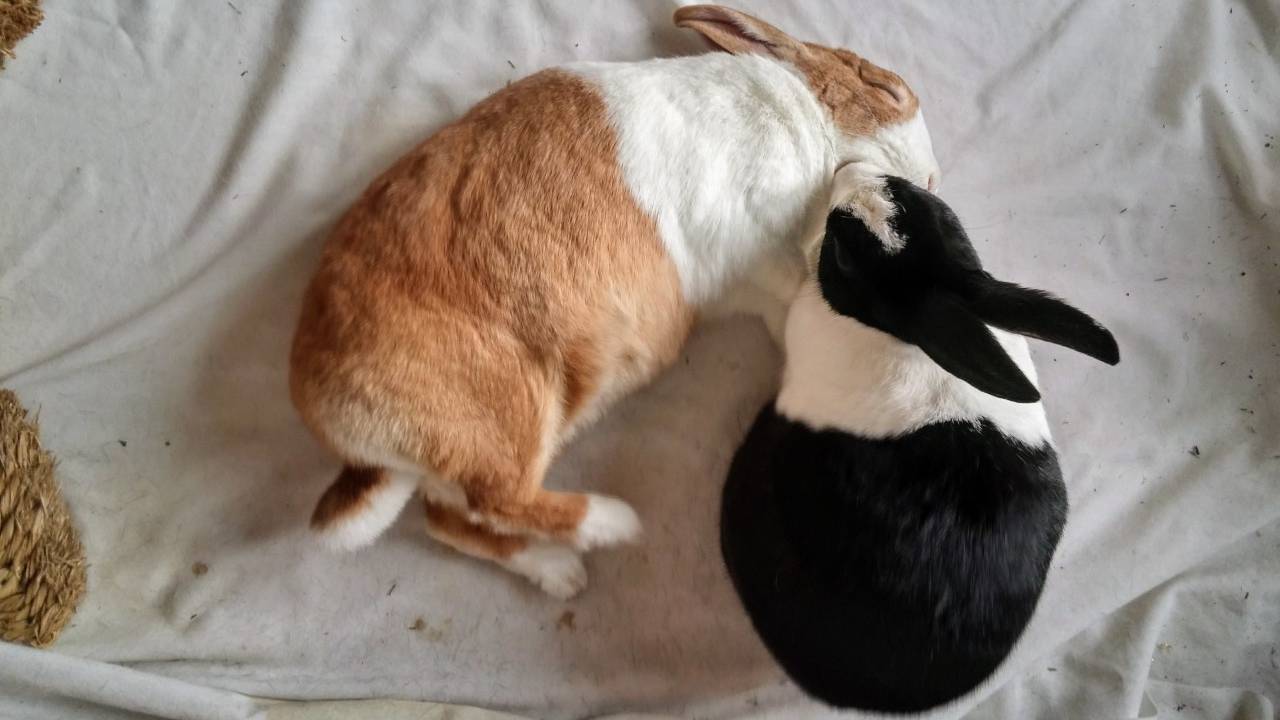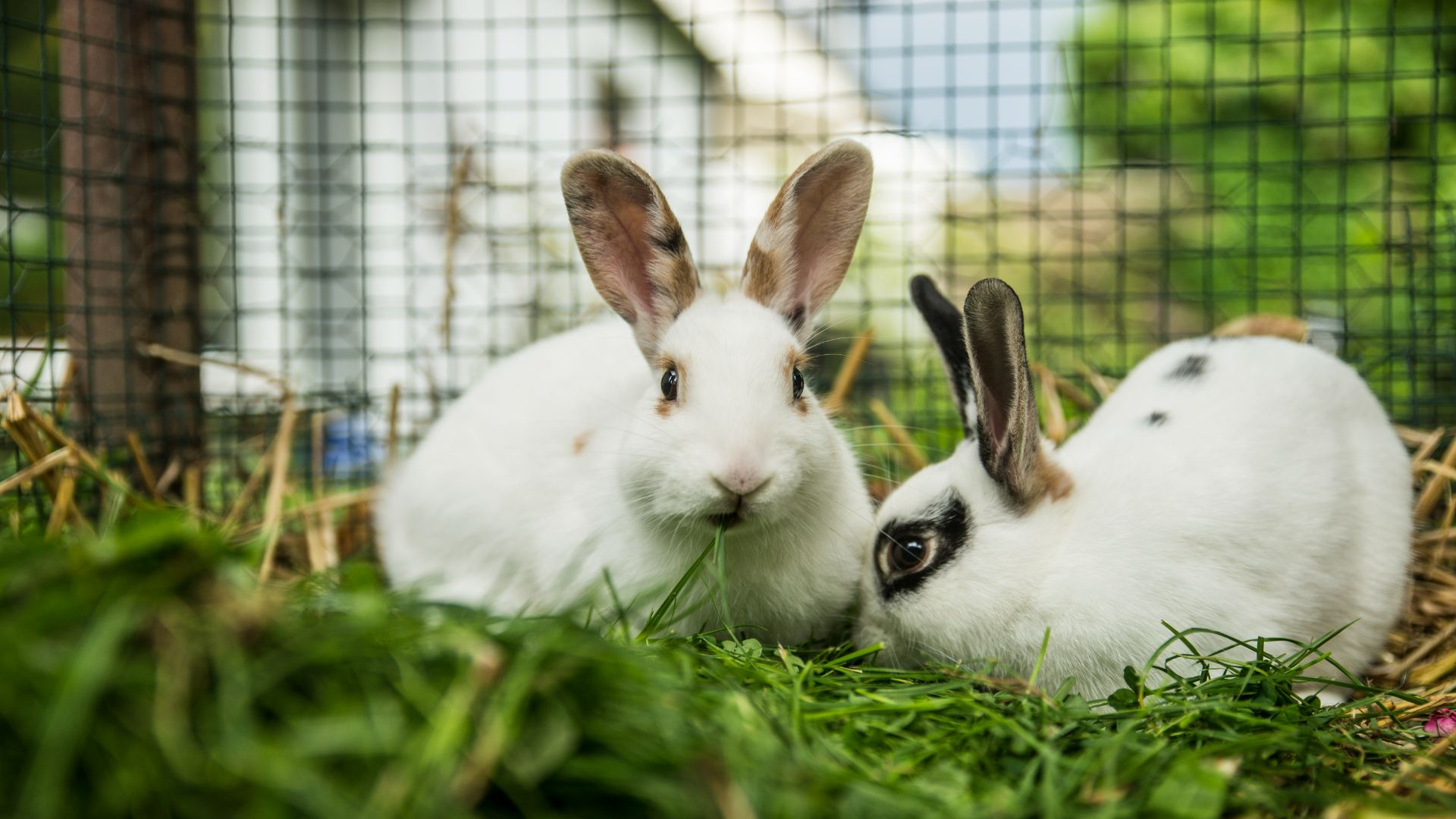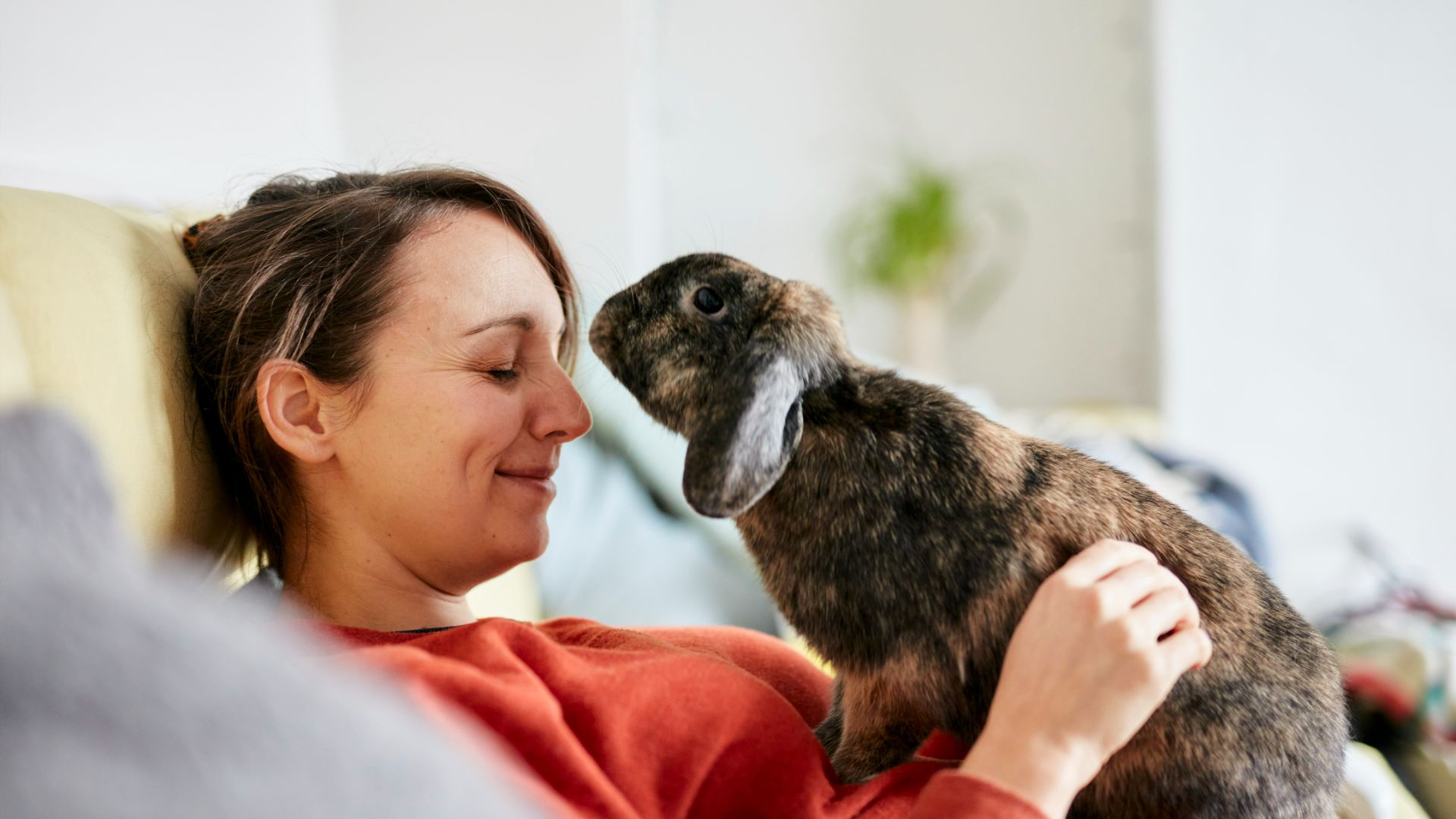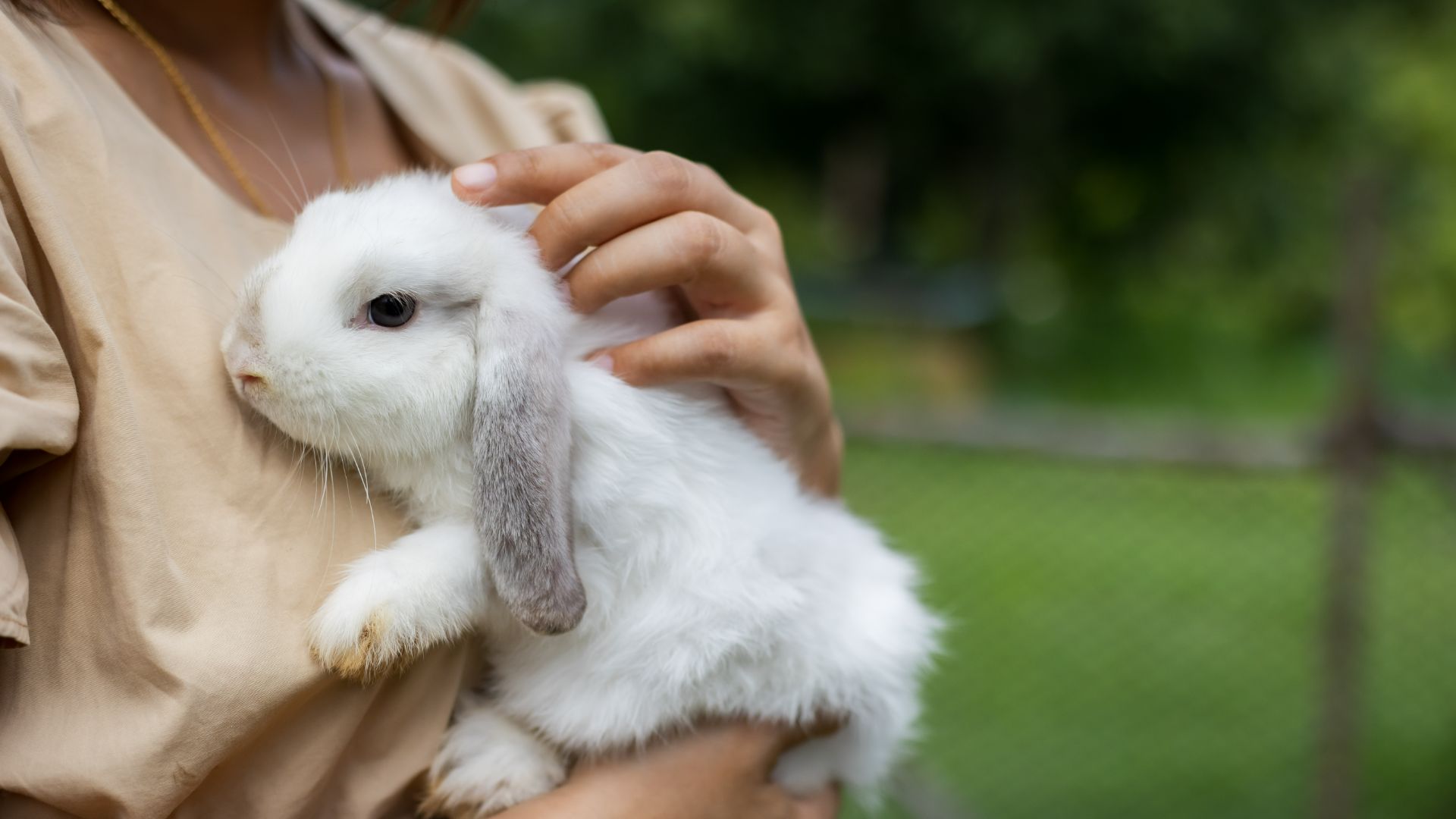
Do rabbits hibernate? That’s a good question, and we wanted to know too. Luckily, Head Nurse Catherine Speight has laid out everything we need to know about rabbits’ behavior patterns during the cold winter months.
During a state of hibernation, an animal’s energy levels will drop significantly along with their body temperature and heart rate. When you think of hibernation, you may think of the obvious ones such as bears but are rabbits included in this group?
You may notice your bunny spending a lot of time in their cozy space, especially if they have one of the best indoor rabbit hutches with a hideout area. But is this a state of hibernation?
Can rabbits go into hibernation?
The short answer is no, rabbits cannot go into a state of hibernation.
During winter, if you are thinking of bringing your rabbits inside the house, you might start by thinking about investing in a quality indoor rabbit hutch to use, however, there is more to consider. You need to make sure you can care for them inside for the whole of winter, as once they come indoors, they must stay inside until the spring when the outside environmental temperature increases, otherwise they will not be able to maintain their body temperature.

They need lots of space inside, to be able to run around and explore, but can have an open indoor cage as a ‘base’ where they can retreat to if they want some time away. Be sure to check out our complete guide if you’re wondering what do rabbits need in their cage.
It is also important to understand the difference between hibernation and a comatose state. Hibernation is a natural and normal state for many species and their bodies have adapted to be able to cope with this. A coma is a consequence of a disease process, whereby the animal is in a prolonged unconsciousness and cannot respond to any external stimuli. Other signs of being in a coma include irregular breathing and the pupils not reacting to light.
Rabbits sleep with their legs tucked under and also on their side, which can take you by surprise if you have never seen them sleep like this. It is normal and a sign of relaxation, but if you are worried about your rabbit, call your vet straight away.
What do you do with rabbits in the winter?

When housing rabbits, it is important to consider both winter and summer care and the suitability of the housing for both.
Most pet rabbits can withstand cold temperatures during winter. In the colder months of the year, they grow a thick winter coat which helps to keep them insulated. All rabbits should have a companion and during winter as they will snuggle up together to keep each other warm.
You may need to slightly increase their food allowance during winter, but when it comes to the do's and dont's of feeding rabbits, it is important to make sure they are fed correctly and not overfed on the pellet component of their diet, which should only make up 5% of their overall daily food allowance. Make sure they have a constant supply of fresh, good-quality hay to eat, which should make up 85% of their diet.
Shelter from the wind and rain is essential, as rabbits cannot tolerate damp and draughty conditions. Make sure they have plenty of hay and straw to bury down into and ensure their water does not freeze. Use heat disc pads under water bowls and bottle covers/socks to try to stop them from freezing, and make sure you check their water supply several times a day, paying special attention to the metal spout in the water bottle, where water often freezes.
Young, elderly, sick rabbits or those recovering from surgery may struggle to keep warm, even with all the steps above, so these rabbits may need to spend winter indoors or in a secure shed/outhouse, but they must have at least 10ft x 6.5ft (3m x 2m) of space at all times.
How do I know if my rabbit is cold?

Rabbits have fur covering the whole of their body, which helps to keep the heat in and keep them warm. Their ears are the part of their body where their fur is sparsest.
The ears are used to help maintain the correct body temperature: when hot, the rabbit can lose heat from their ears by dilating the veins; and when cold, they can constrict the veins in their ears to help maintain their body heat. So relying on whether or not their ears are warm or cold is not a useful way of telling if they are cold.
The best way is to feel your rabbit’s skin on their body, by parting the fur and feeling among it; they should feel warm to the touch.

Nighttime is usually the coldest time of the day. If you have ever wondered “Are rabbits nocturnal?” well, they are not. Rabbits have periods of activity during the day and night but are most active at dawn and dusk, so even on a cold night, they will be moving around, which helps them to keep warm. Providing your rabbits with lots of toys, tunnels, boxes, hides, and games for rabbits will help to keep them entertained and moving around.
If you enjoyed this feature check out 32 facts about rabbits that might surprise you.







